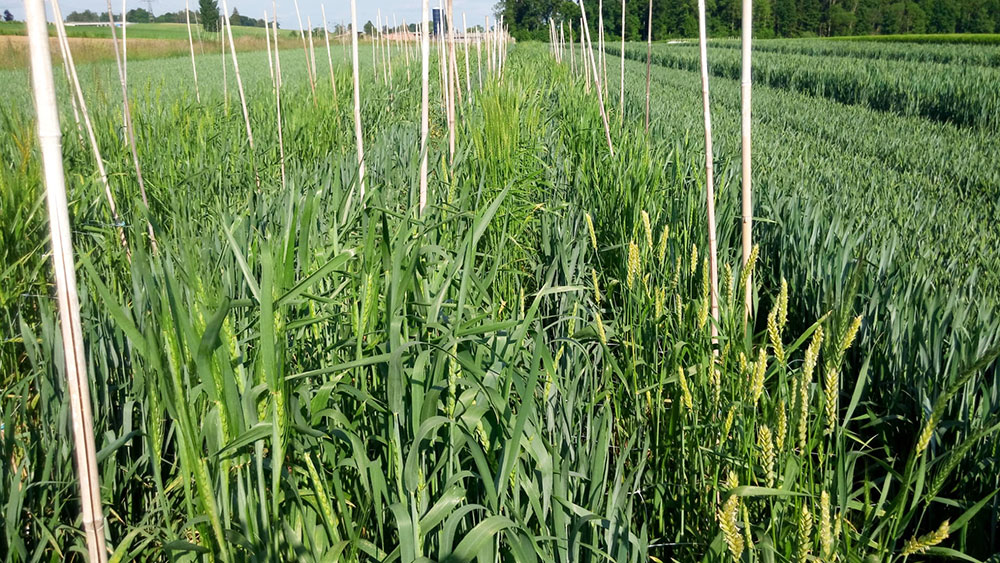Wonderful World of Wheat

Green genetic engineering will help secure our food supply, believes plant biologist Beat Keller. One possible approach involves genetically modifying wheat to make it more resistant to powdery mildew.
Beat Keller has been researching wheat for decades and has lost none of his fascination with the plant. Each year, the high-yielding crop produces around 100 kilograms of grain – per person on the planet, mind you. “Without wheat, there would be widespread hunger, not only in poorer countries, but also in Switzerland,” says the molecular biologist and plant researcher.
Thanks to this strategic importance, as well as the fact that its long agricultural history makes it one of the most thoroughly researched plants, wheat is a rich object of study for molecular biologists. As a result, Beat Keller and his fellow researchers have spent the past few decades working on genetically engineering wheat to make it more resistant to powdery mildew, a widespread fungal disease
And it has become clear that this method works and the plant’s resistance can, in the researcher’s words, be “massively improved”.